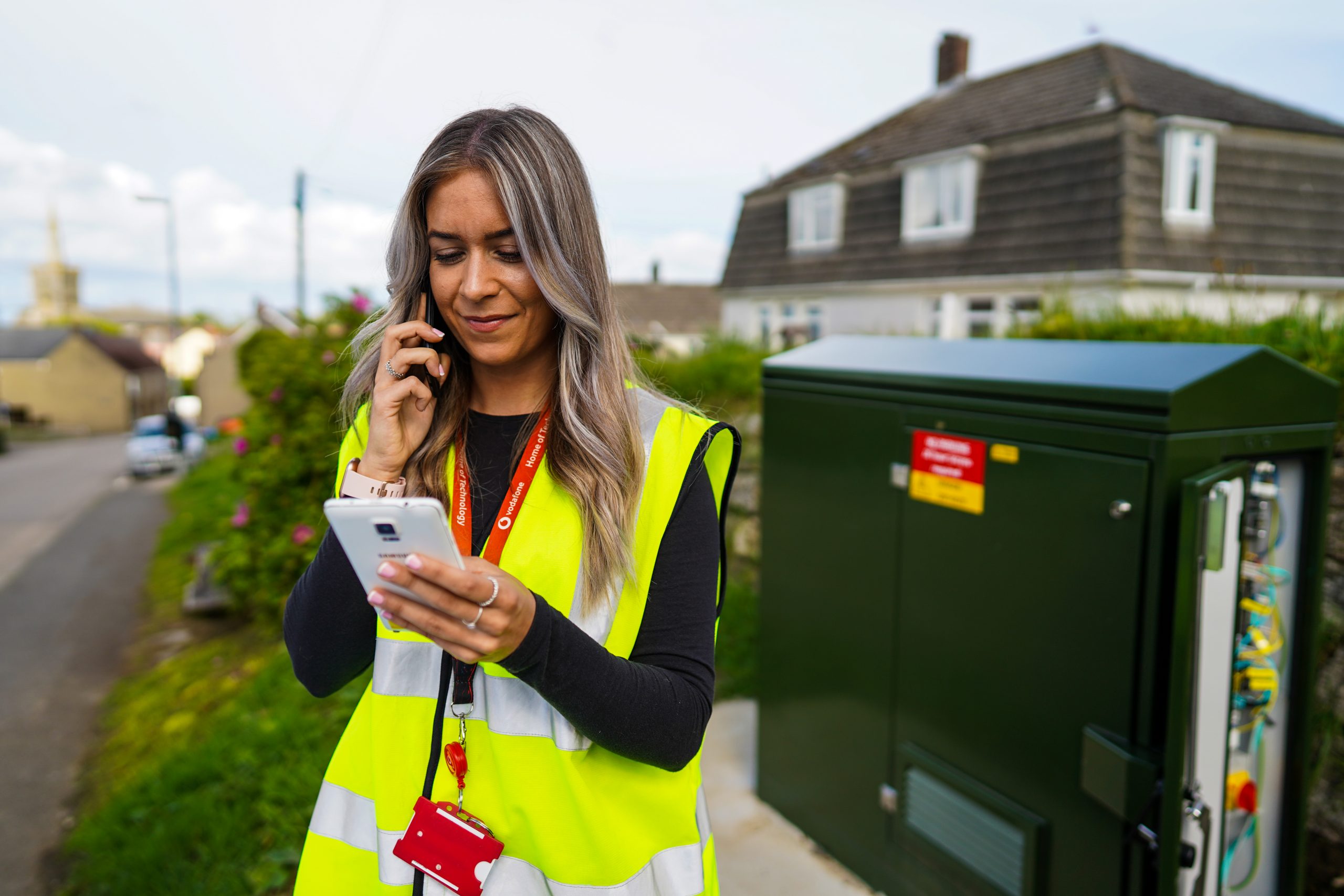
Starting with Milton Keynes, we plan to make full fibre available in 12 UK cities, covering one million premises in total. To achieve that target, we need the right regulatory framework and supportive public policies.

By Nick Parbutt, UK Strategy & Wholesale Director | Vodafone UK
To be the digital leader the UK aspires to be, we must ensure that the UK is full fibre ready. Now we’re moving forward with that ambition. Milton Keynes will be the first place in the UK to benefit from Gigabit-capable full fibre broadband as part of Building a Gigabit Society, a new roll-out programme launched by Vodafone in partnership with CityFibre.
In March of this year, CityFibre will begin expanding its existing 160-kilometre full fibre network in Milton Keynes. By deploying fibre-optic cables to transmit data, it will provide the city’s residents with fast, reliable broadband services capable of Gigabit speeds – that’s 1,000 Mbps, or megabits per second. Once CityFibre’s work is complete, almost every business and home in Milton Keynes will have access to full fibre. With this technology at its disposal, Milton Keynes – crowned one of five Fast Growth Cities in the UK by the Centre for Cities – will have the digital infrastructure it needs to become a leading hi-tech hub.
And Milton Keynes is just the beginning. We plan to make full fibre available in 12 UK cities, covering one million premises in total. To achieve that target and build a Gigabit Society, we need the right regulatory framework and supportive public policies. Before setting out what we think these are, let me first explain why full fibre is so critical to the UK’s digital future.
Why full fibre matters
Built from fine strands of glass fibres, full fibre networks are capable of transmitting data much more quickly and reliably than old copper wires. Here’s what that means in practice.
At Gigabit speeds, hospitals will be able to download a 2 gigabyte CT scan in 17 seconds, instead of 11 minutes over a standard broadband connection. Film fans will be able to download the latest 60 gigabyte Ultra-HD blockbuster in 8.5 minutes instead of 6 hours. And video game fans will be able to download a 5 gigabyte virtual reality game in 42 seconds, not 30 minutes.
Currently, only 3% of UK premises have access to full fibre. That’s a far cry from what other countries have achieved, with Portugal at 86% and Spain at 63%, for example. We must and can do better. As our CityFibre partnership has shown, there is the capital and the willingness to invest. But to facilitate and accelerate investment, regulation and public policy have an essential role to play.
The regulatory framework a Gigabit Society needs
At present, access to the vast majority of the UK’s digital network is in the hands of a single player: BT’s Openreach. Regulation needs to be put in place to prevent Openreach flexing prices on a regional basis for their copper-based G.fast technology, in order to undermine rivals seeking to invest. This is currently being consulted on by Ofcom.
In addition, broadband providers need simple and effective access to infrastructure to carry out necessary installations and speed up full fibre deployment. Critically, the intended regulation on allowing providers to access BT’s pole and duct network needs to be implemented, with robust and effective processes for its use. This has been one of the key reasons why fibre deployment in Portugal is so advanced, and is an essential ingredient to enabling an accelerated deployment of full fibre.
Faster planning approvals to expedite new fibre construction and support from local authorities is also vitally important. As is making it easy for customers to switch from legacy copper to fibre.
That’s not all. To build Gigabit Britain, we must make full use of available technology – and that means taking advantage of “dark fibre”, those strands of buried optical fibre currently not in use, but which are vital to supporting full fibre networks, 5G and business connectivity.
The untapped potential of dark fibre
People and businesses are increasingly making digital technology part of everyday life. Whether we’re at home, school, work, or out and about, we’re using digital devices more and more to stay connected. As a result, the amount of data moving through fixed and mobile networks is soaring. With the advent of 5G and full fibre broadband, these growth rates are set for another step change. All of this data traffic needs to be aggregated and transported to the internet or to other business locations. The only economical way of providing this data network is to use fibre, and in particular dark fibre.
Communications providers have to be able to access those fibres already in place to be able to deliver the faster broadband and mobile connectivity a digital economy requires. Unless dark fibre is made available, consumers and businesses will be constrained from making full benefit of the technology deployed – simply because we cannot make full use of the fibre that’s already in the ground.
Vodafone has already invested in services and technology to make use of dark fibre, and we are keen to get started. That’s why we urge Ofcom to stick to its plans to make dark fibre available from Spring 2018, and then to eliminate any limitations on its use.
Building a Gigabit Society
Current plans only allow speeds of up to 1 gigabit per second (Gbps) even though we have the technology for much higher speeds. This is like investing in HS2 and restricting the trains to 20 miles per hour, or buying a sports car and restricting its speed to 20 mph. Given the UK’s soaring demand for data, this situation cannot last. Our industry needs to build 10 Gbps and 100 Gbps links to power the networks. Unless we remove the 1 Gbps limitation, the fibre will be there, the electronics will be there, but they will not be fully utilised because BT-Openreach have been using the courts to fight opening up full access in order to maintain its profits. That’s unacceptable.
The UK’s Gigabit future is absolutely achievable. But we need to be making regulatory changes now to allow the investment to flow, and to provide the opportunity to realise this potential. At Vodafone, we’re committed to helping the UK become a digital leader. With the right regulations and policies in place, we will.




![Fan hand with mobile phone photographing football game[Adobe Stock] a stock photo of a sports fan's hand holding a mobile phone up to photograph a football game in a stadium [Adobe Stock]](https://www.vodafone.co.uk/newscentre/app/uploads/2024/08/Fan-hand-with-mobile-phone-photographing-football-gameAdobe-Stock.jpg)